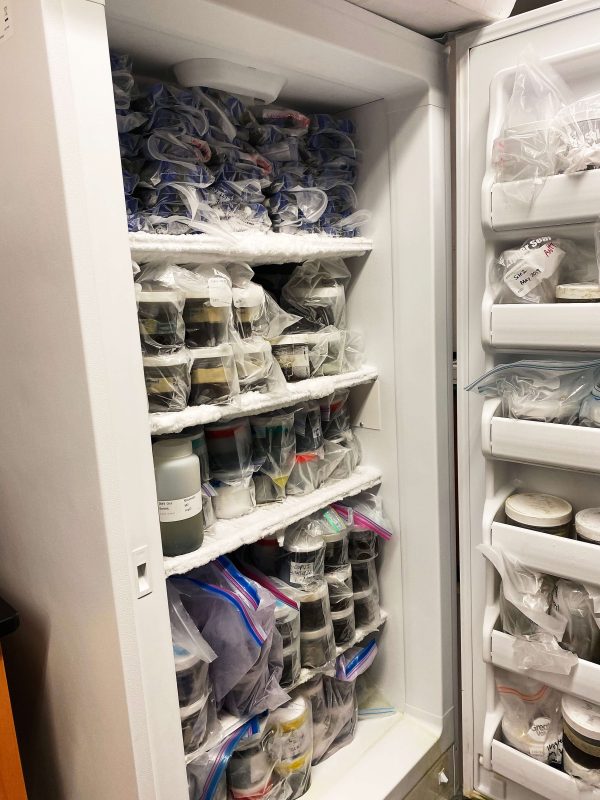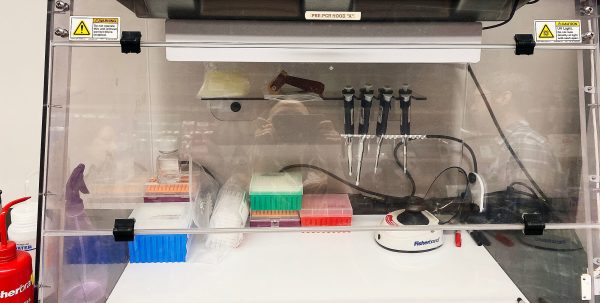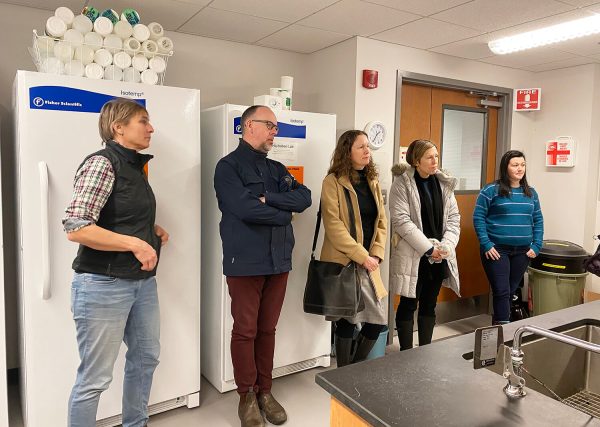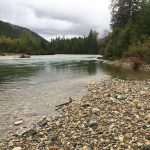Living Lakes Canada joins rest of STREAM team at biomonitoring lab
From February 10 to 11, Living Lakes Canada joined representatives from Environment and Climate Change Canada, the University of Guelph and the World Wildlife Fund-Canada in Guelph, Ontario for the annual STREAM team face-to-face gathering.
The STREAM project, led by the aforementioned organizations, is a national community-based water monitoring project which involves the collection of benthic macroinvertebrates from rivers across Canada. The benthic macroinvertebrates are collected using the Canadian Aquatic Biomonitoring Network (CABIN) protocol for standardized data collection then analyzed by the new technology DNA metabarcoding by the University of Guelph. This biodiversity data will help build a new baseline reference library of the benthic communities that currently exist in rivers across Canada, making it possible to monitor the long-term impacts of climate change and water pollution.
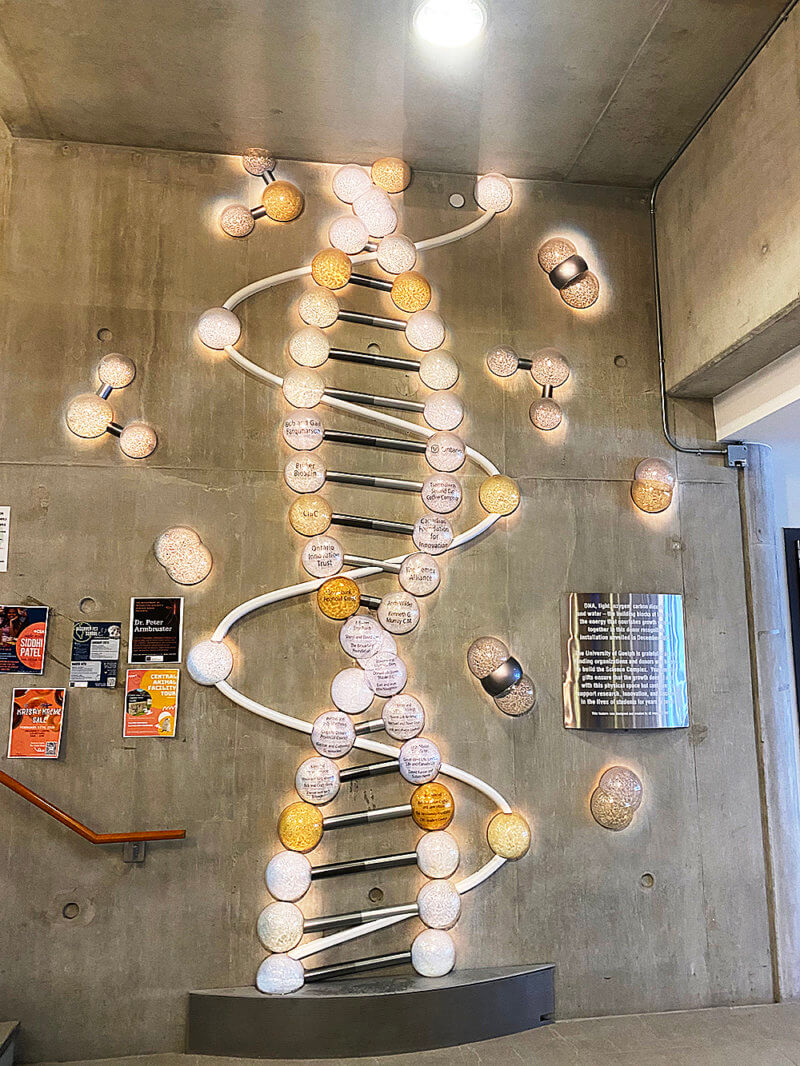 The STREAM team met to review the first year of the three-year project (2019 was Year 1). Successes and lessons learned from the first year were recapped.
The STREAM team met to review the first year of the three-year project (2019 was Year 1). Successes and lessons learned from the first year were recapped.
Successes included exceeding the target milestone of the number of samples collected. Over 700 samples were collected by participating groups across Canada when the goal was 500. Another milestone exceeded was the number of participants who attended the two-day CABIN field certification courses: over 75 people were certified in the national water monitoring protocol standard, when the goal was 40 participants over the three years.
Lessons learned included identifying the need to provide participating groups with more clarification of how the new technology of DNA metabarcoding fits into the already existing CABIN methods and data.
“We’re really excited to implement what we’ve learned from our on-the-ground experience working with the community groups last year as part of the STREAM project. We will continue to support groups setting up their community-based water monitoring programs across the country, removing as many barriers as possible, and continuing to support Year 1 participants in the sustainability of their programs,” said Living Lakes Canada STREAM Program Manager Raegan Mallinson.
During the meeting, the STREAM team received a tour of the Hajibabaei Lab in the Centre for Biodiversity Genomics at the University of Guelph. This is the lab where the bulk benthic samples collected as part of the STREAM project are sent. The lab performs the DNA metabarcoding analysis, which provides the biodiversity data that is the end goal of the STREAM project: the presence/absence taxa list of the benthic macroinvertebrates in the sample.
In 2020, participating groups will continue to receive free benthic macroinvertebrate sample analysis through DNA metabarcoding by the University of Guelph. The priority watersheds have been selected and include:
- the Yukon watershed
- the Fraser Basin, in the Nechako sub-watershed in B.C.
- the Winnipeg watershed in Ontario
- the Great Lakes (Northwestern Lake Superior) in Ontario
- the Ottawa watershed in Ontario
A two-day modified CABIN field certification will be offered in priority watersheds for participating groups and individuals, along with monitoring support and sample shipment.
Although training efforts are focused on the priority watersheds, participation and benthic sample submission (collected through CABIN) from any group or program in any watershed across Canada is encouraged.
“Free DNA metabarcoding sample analysis by the University of Guelph is available to any interested participants that are using the CABIN protocol, even if they are not located in the priority watersheds identified by the STREAM project. This provides a great opportunity for groups starting a new biomonitoring program,” says Mallinson.
To help build Canada’s new baseline and support the validation of cutting-edge technology for stream health assessments, join the STREAM project.
For more information, email STREAM Program Manager Raegan Mallinson at raegan@livinglakescanada.ca.


